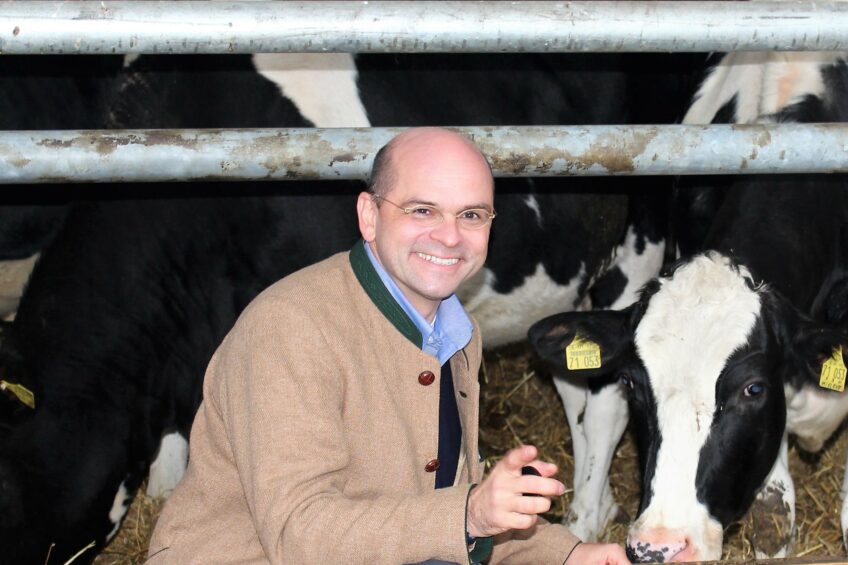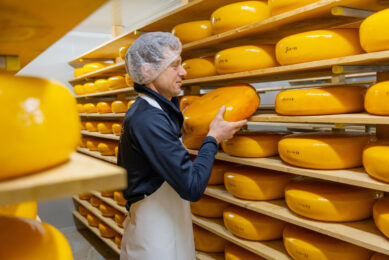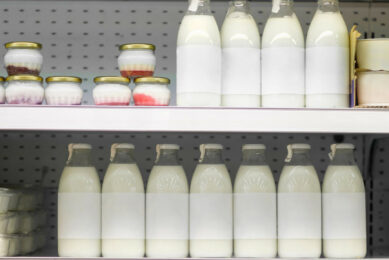“Europe to be world leader in data use”

Should we go for bigger farms and is data use really taking off now? Alexander Anton, secretary general of the European Dairy Association (EDA) sheds his light on some of the topical issues in the EU dairy sector.
For years the message driven home to dairy farmers was that they had to expand in order to stay in business. However, some countries are now taking the opposite approach. The Netherlands is now supporting smaller farms, spurred on by the strict phosphate regulations. Alexander says the size of a herd is really up to the farmer.
“The Dutch ‘lactosphère’ is an example in many ways,” he says. Mr Anton: “We just talked about sustainability or ‘duurzaamheid’ as they call it in Dutch. The Dutch Dairy Association NZO published already a few years ago its position on ‘big farms’. But, at an EU level, ‘big farm’ is a rather relative term and the farm and herd size mainly depends on the approach of the farmer.”
When quizzed on whether European dairy farmers should specialise in one sector of agriculture or indeed get smaller, Mr Anton is a bit evasive. He says: “The diversity of dairy farms in Europe is a strength. The decision to specialise on milk production or to have a broader production is an individual business decision by each farmer according to their individual situation. I can’t see a correlation between specialisation and smaller herd numbers.”

Alexander Anton is the secretary general of the European Dairy Association (EDA), which is recognised as the voice of the dairy processing industry in Brussels. He has been in the post for the past four years and has played a pivotal role in how the organisation has changed over his tenure.
Data usage on dairy farms
European dairy farmers are streets ahead of any other country in terms of using technology, or that is the claim. Alexander is convinced Europe will soon be the leader in data usage within dairying. “When working for a US corporation 10 years ago, I visited many dairy farms in the USA and I was always impressed by the sheer size of the operations and their extreme level of automation,” he says. “At one of my last dairy farm visits in Germany, I witnessed a medium size dairy farm with an extremely smart level of automation and IT use. The investment volume was perfectly adapted to the milk production. I am convinced that Europe will become the world leader in data use as soon as the European satellite system will deliver for instance the data on grass growth hectare by hectare.”
The EU will not be the same
Brexit is upon us and the ramifications of the UK leaving the European Union will be felt throughout the dairy industry. However, Mr Anton does not see any other country leaving the union even though they are not totally satisfied with the model. He says: “The EU will not be the same without the UK and this is also true for the EU dairy market. The dairy supply chain in the EU 28 is intrinsically linked. We are working with all our members on the Brexit issue with the objective to be able to continue under single market conditions or under conditions as close as possible to those. Even if the European idea seems to have lost its popular appeal in quite some parts of the Union, I can’t see other countries following the UK example. The overhang of public intervention stocks will slow down the market recovery, but markets will recover.” EDA is discussing all kinds of ideas to help the EU Commission to comply with the basic rule of article 16 of the sCMO regulation: avoid any disturbance on the market. Historically and, so far today, the EU Commission has always managed this very, very well. “Together with all other stakeholders in the dairy sector we had the possibility to discuss and to give input to the market outlook of the EU Commission during its drafting phase.
Read the full interview with Alexander Anton in the next edition of Dairy Global magazine.
Join 13,000+ subscribers
Subscribe to our newsletter to stay updated about all the need-to-know content in the dairy sector, two times a week.










